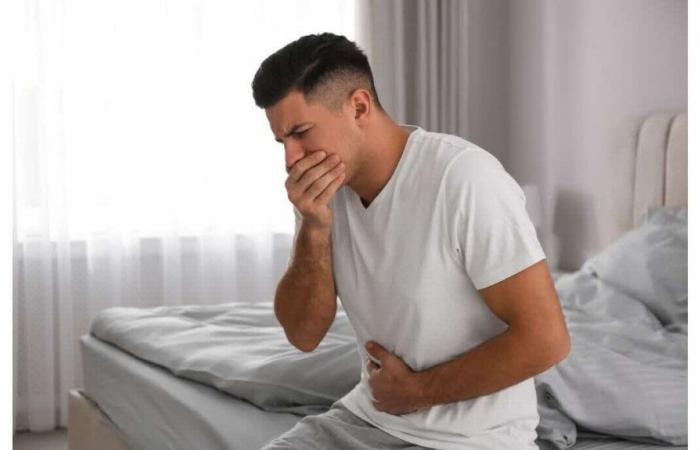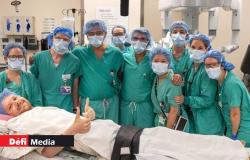Dr Issam Hamrerras:
You must first differentiate between food poisoning and food poisoning. Scientifically, the difference between the two lies in the cause and nature of the contamination. Food poisoning is caused by the ingestion of toxins produced by microorganisms, usually bacteria that exist in food. On the other hand, food poisoning is explained by the ingestion of food contaminated by pathogenic microorganisms (bacteria, viruses, parasites) which multiply in the digestive tract. In addition, summer also sees an increase in collective food poisoning (TIAC). This is the case where at least two people who have consumed the same food suffer from identical symptoms, generally gastrointestinal. On this point, I would like to point out that any episode of TIAC must be declared so that investigations can be carried out to identify its origin and implement the necessary preventive measures. To answer your question, I would say that this type of discomfort increases in summer for several reasons:
• High temperature: Hot temperatures encourage the rapid growth of pathogenic bacteria such as Salmonella and Escherichia coli (e. coli) in food.
• Poor food storage: In summer, people tend to travel and do outdoor activities. In these two cases, the cold chain remains difficult to maintain, which increases the risk of food contamination.
• The nature of the foods consumed: summer meals often include foods that present a higher risk of contamination such as raw or undercooked meats, salads and unrefrigerated dairy products.
Concretely, what are the causes of food poisoning?
The food contamination process can take place before, during or after its preparation. Among the factors favoring food poisoning, we cite non-compliance with hygiene measures, but also and above all the fact that food is poorly washed, poorly cooked or poorly preserved. Salmonella and E. coli are, in fact, the bacteria most affected by food poisoning. Often the smell and appearance of the food is not changed, even if it is contaminated, so you have to be careful! I would like to point out that poisoning due to chemicals is a health concern. In this sense, we can give as an example:
• Toxins of natural origin: staple foods such as corn or cereals may contain high levels of mycotoxins such as aflatoxin and ochratoxin. High consumption of these foods could disrupt the immune system.
• Persistent organic pollutants: this is the case, for example, of dioxins from industrial processes and waste incineration. These are compounds that accumulate in the environment and in the human body and can thus alter hormones or even cause reproductive or developmental health problems.
• Heavy metals such as lead, cadmium and mercury: Food contamination occurs mainly through air, water and soil pollution. It should be noted that the smell and appearance of the food remain unchanged even if it is contaminated. So you have to be careful.
What are the symptoms ?
Symptoms of food poisoning appear a few hours or even days after infection. They differ depending on the pathogen. Typically, one feels nausea with vomiting and diarrhea. These symptoms can be accompanied by an episode of low-grade fever, headaches, asthenia, physical fatigue with the appearance of aches. The symptoms characterize, in fact, the body’s reaction to the disease to eliminate the pathogen. I would like to emphasize that food poisoning must be taken seriously and that while some people are able to resist it without consultation, others find it difficult. It is also a common phenomenon according to the World Health Organization (WHO). This estimates that 600 million people, or nearly one in 10 people in the world, become ill each year after consuming contaminated food. Children under 5 bear 40% of the disease burden from foodborne illnesses and 125,000 die each year.
How to prevent summer poisoning?
This requires the adoption of certain reflexes, namely:
• Wash your hands thoroughly with soap and water, especially before preparing meals, before eating and especially after each use of the toilet.
• Store foods at appropriate temperatures. The ideal would be to store raw foods properly in boxes with lids or cover them with cellophane to protect them from air.
• Rinse vegetables and fruits well before eating them.
• Cook foods such as meat, chicken, eggs and vegetables thoroughly.
Adopting these reflexes remains important to protect yourself, protect those around you and have a good vacation. If you fall ill despite these reflexes, here are the actions to adopt:
• Drink enough mineral water to avoid dehydration and compensate for the loss of mineral salts. It is best if the water is rich in sodium.
• Take time to rest and avoid eating foods that are too fatty, too spicy or rich in fiber.
• Favor a more liquid diet, especially soup.
• Favor an anti-diarrheal diet by consuming rice and bananas in the event of diarrhea. When does an emergency consultation become necessary? Consultation with a doctor is strongly recommended in the case, for example, of a patient returning from traveling and suffering from diarrhea lasting more than 72 hours. You should also consult if the fever remains high despite all remedies and/or if the diarrhea lasts more than 5 days without improvement. Vomiting for 24 hours should also be a warning. On a medical level, the consultation becomes an emergency in certain cases, particularly when the patient begins to show confusion or notices the presence of blood in the stools. The situation should also be taken very seriously in the event of dysuria, that is to say the absence of urine for 12 hours.






